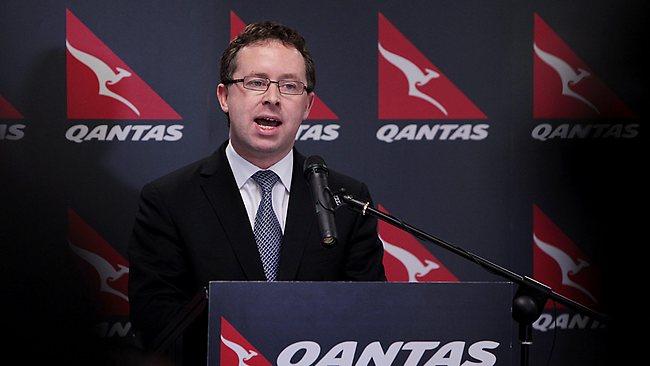Joyce's gamble may put IR policy back on the table
QANTAS is a listed company, and therefore Alan Joyce's first and foremost responsibility is to his board and his shareholders.

LET'S get one thing in the Qantas dispute perfectly clear. The national carrier is a listed company, and has been since July 1995. The chief executive, Alan Joyce, is therefore first and foremost responsible to his board and his shareholders. The Australian public comes a distant second.
This is the model used in capitalist Western democracies because it is the most efficient way for businesses to operate. Chief executives won't put it quite like that, of course. And gambling with consumer satisfaction is a risky business. But consumers only matter in the context of the business model and Joyce had more to worry about when it came to the long-term viability of that model than upsetting customers.
If the public doesn't like this reality, and would prefer state-owned airlines, it needs to understand what comes with that: higher prices, less efficient services and less reliable running times. Oh, and because the profit motive is removed, customer service usually falls away as well. Anyone who has ever dealt with a government department knows that.
Importantly, because the state has to be a best practice employer, it's workforce is not only highly unionised, but the unions are far more influential than they can be when operating within private companies. That means strike action is more frequent, as it was before governments began privatising their enterprises.
It might seem strange that Joyce was prepared to do what he did to his customers last weekend when he grounded his fleet without notice. The negative impact must be significant. But it was a calculated call and not the actions of a madman, as the pilots association tried to portray it.
Joyce decided that the pain of grounding the fleet to help achieve his industrial outcome was a lesser evil than the ongoing uncertainty of industrial action by the unions. Don't forget, Qantas had been losing $15 million a week anyway as consumers switched to other carriers.
Joyce faced a dilemma: give in to union demands and risk the long-term economic viability of the airline or take them on. Once he made the tough decision he had to be prepared to take the gloves off. He had to win. He had to do what was necessary.
Union leaders have been talking tough in recent months, hammering Qantas for risking safety standards, suggesting commuters switch to other airlines and implying that this dispute will go on for a year or more.
I have no gripe with the tactics of the likes of the Transport Workers Union's Tony Sheldon. They have played hard ball, issuing strike orders and then rescinding them too late for the airline to put flights back on. Joyce responded by grounding the fleet. It's tough out there.
Union leaders have a job to do protecting the pay and conditions of their members. But management needs to think about the economic viability of the business, which is why management, not the unions, run the company. If unions don't like that they are free to buy up Qantas stock and take over the business. But just watch the union approach change if they are actually responsible for turning a profit.
Joyce used ends to justify means when he grounded the fleet. Machiavelli would have been proud. The end, he hopes, will be a business model that can survive in Asia's competitive market. He secured arbitration and an end to industrial uncertainty.
From here the real battle begins. Joyce must win favourable outcomes before Fair Work Australia. If he doesn't, the pain inflicted on the Qantas brand will have been for nothing. Qantas will cop a FWA finding on pay rises that favours the unions, so long as union attempts to dictate to management on outdated work practices are dismissed. If not, the legislation will come under greater scrutiny. The rest of the business community is watching.
And if FWA delivers a crushing blow to Qantas, the opposition will finally need to grow some courage. It will have to present an alternative policy that might risk its poll advantage, but would save the country from laws that hamper business productivity.
Planes in the sky or not, there is a long way to go in this dispute.


